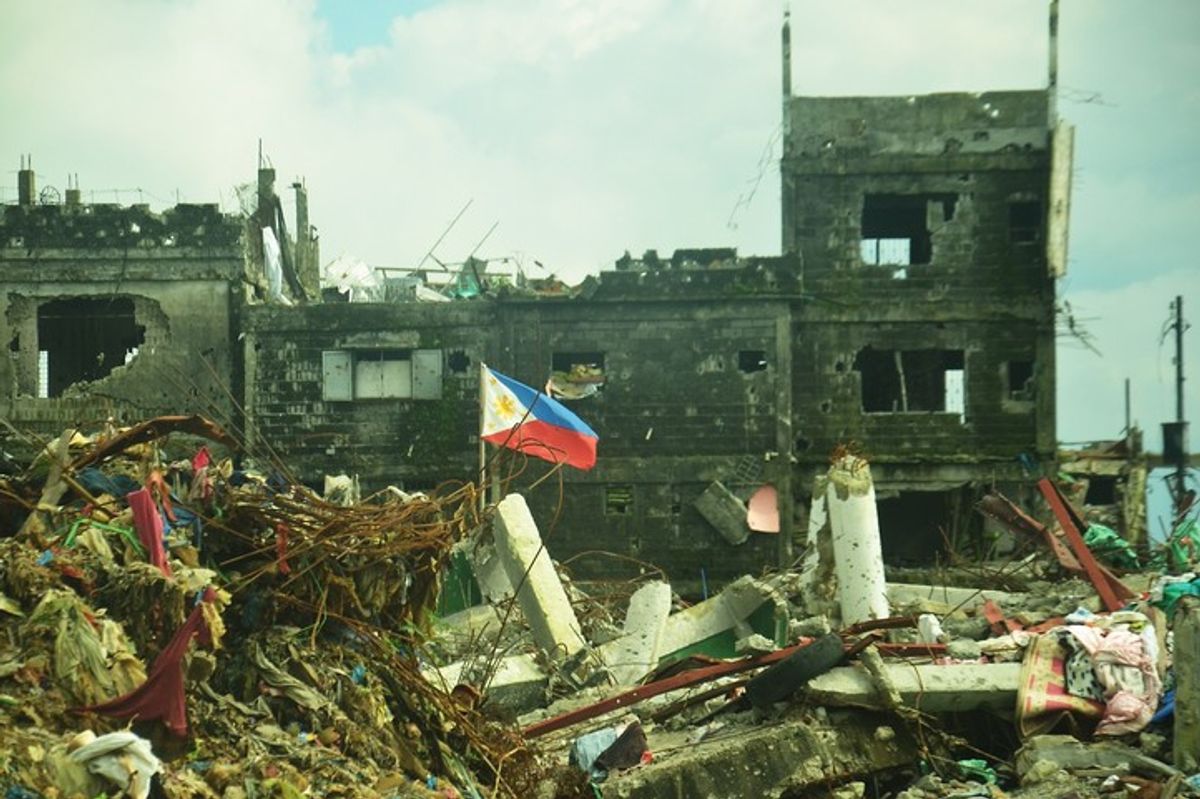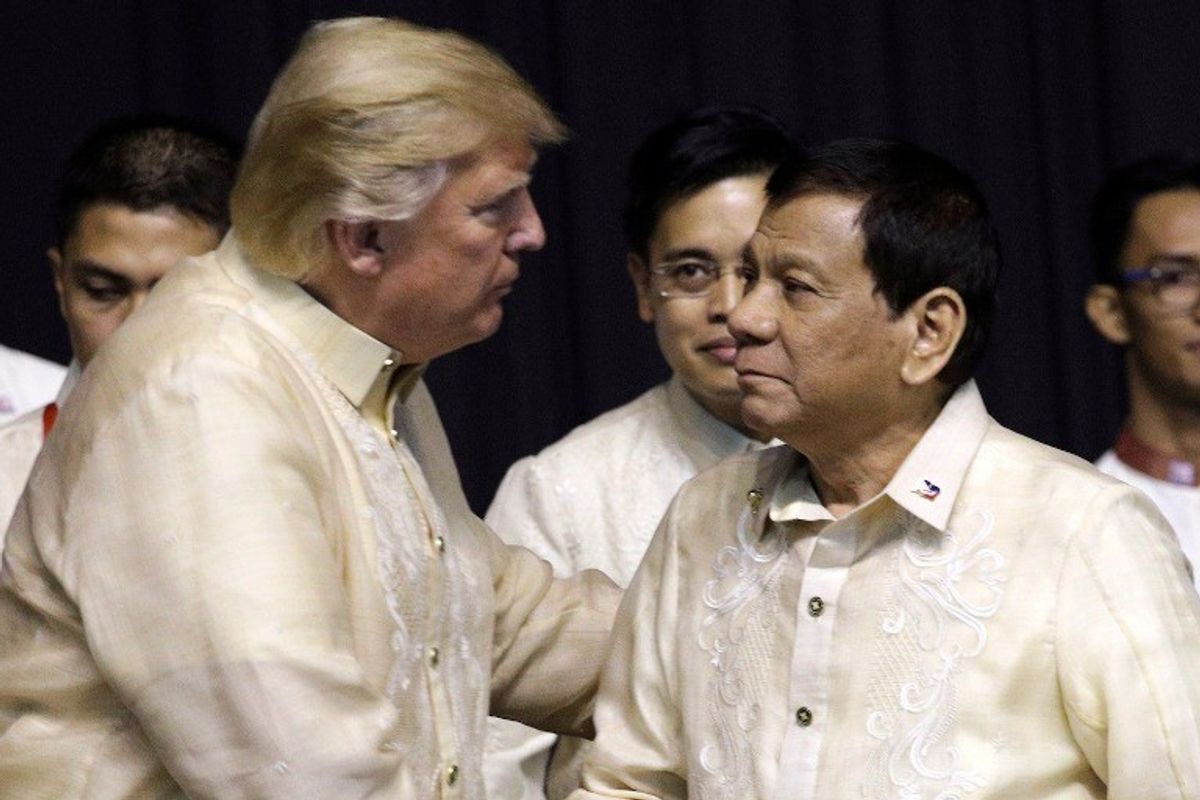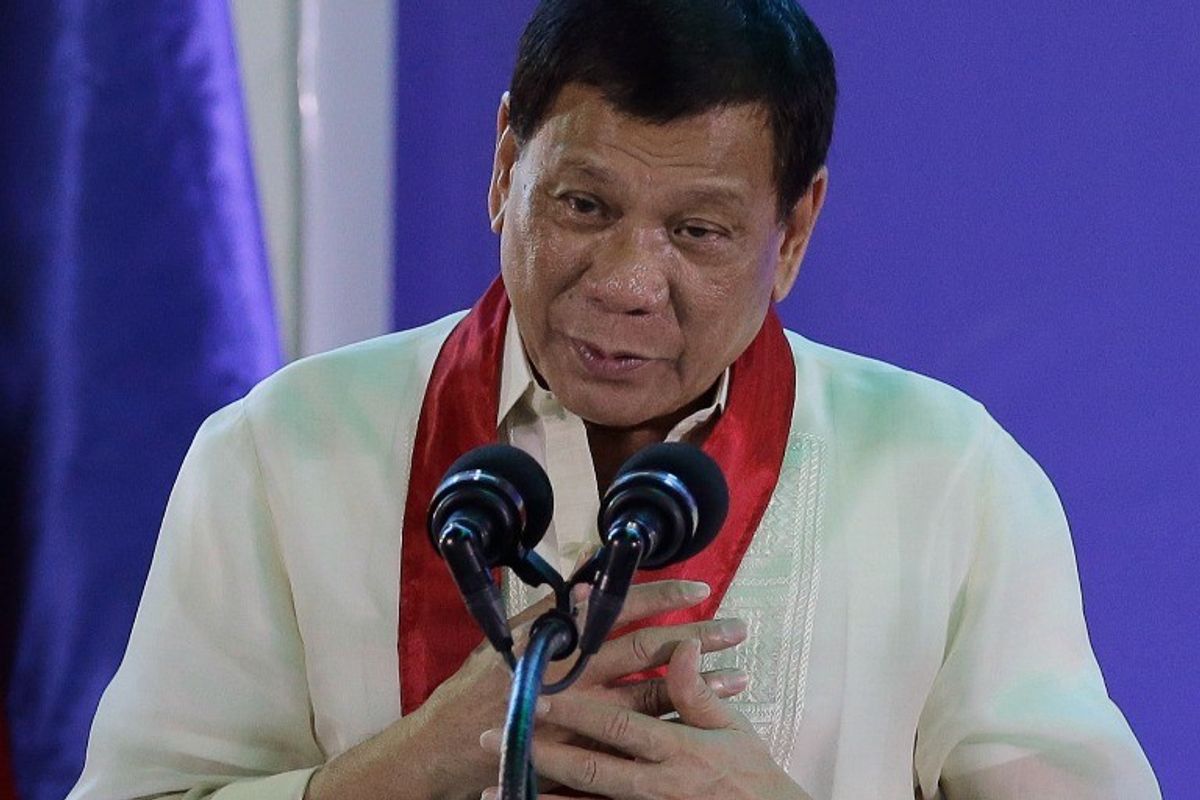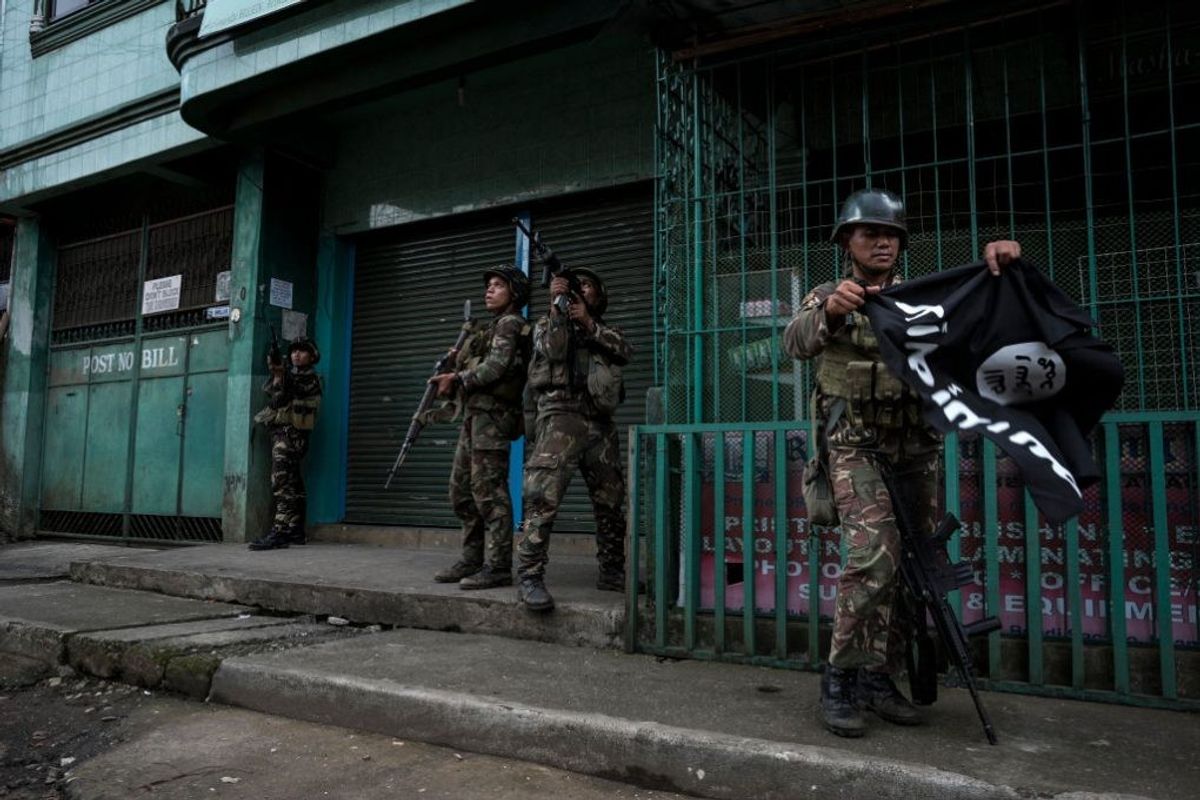Foul-mouthed strongman, Rodrigo Duterte, declared victory in the Philippines’s presidential election this week after one of his rivals, Grace Poe, conceded to his insurmountable lead.
In the Philippines, his tough-on-crime platform has earned him the nickname “Duterte Harry” – a reference to Clint Eastwood’s “Dirty Harry.” But Americans know him as “the Filipino Donald Trump” for his populist campaign and disregard for political correctness.
Duterte’s virulent insults against individuals such as the Pope, whom he called a “son of a whore,” and derogatory remarks about women, like his joke about wanting to gang-rape a missionary, have piqued international attention.
His inflammatory statements have spilled over into foreign policy too. He has threatened to sever ties with the U.S. and Australia over their ambassadors’ criticism of his crude humor, and he called for the Singapore flag to be burned over a Facebook post – both comments he later dismissed as jokes taken out of context.
As a former Mayor of the southern city of Davao, Duterte’s international inexperience and lack of deference for his allies, raise questions about whether he is ready to make foreign policy decisions in a country that is surrounded by security challenges, including conflict in the South China Sea and Islamic militantism in its southern region.
But Philippine watchers are optimistic that Duterte will adjust his rhetoric and become more conciliatory as president.
“Most of his statements so far have been reflections of popular sentiment,” said Jay Batongbacal, associate professor at the University of the Philippines College of Law. “The real details of his foreign policy have still to be worked out.”
“The mayor is known as somebody who changes the way he speaks when he is campaigning,” added Victor Andres Manhit, managing director of the Philippines team at BowerGroupAsia. “He had to offer this kind of rhetoric to the voters to make him seem like them, to make them feel like he knows what they feel; what they are frustrated about.”
As the Philippines awaits a ruling by the UN tribunal at the Hague on the legality of China’s claims to disputed land-masses in the South China Sea, Duterte said he would personally jet ski to disputed territory and declare sovereignty himself. But at the same time, he expressed an interest in improving the country’s relationship with China.
“These are campaign-related statements,” said Batongbacal, “He has issued many contradictory statements like that.”
But uncertainty about Duterte’s policies on China and the South China Sea, come at a time when the U.S. has upped its military presence in the region, using Philippine bases and conducting joint exercises. Earlier this week, a U.S. warship sailed near one of the artificial Islands built by China in the disputed waters, prompting the Chinese to scramble fighter jets to keep an eye on the American ship.
In reality, Batongbacal believes Duterte is going to be more pragmatic than the current administration in approaching China, demonstrating more flexibility in policy options and willingness to compromise.
As evidence of this, Duterte recently announced he wants to start multilateral talks with the U.S. and Australia about how to deal with South China Sea issues.
Trade is another priority for Duterte, according to Manhit. Duterte wants to be more aggressive with trade policy, paving the way for the Philippines to join the Trans-Pacific Partnership (TPP). He also wants to amend the constitution to allow more foreign ownership of industries and property.
However, it is Duterte’s promise to rid the country of crime, and his image as an anti-establishment alternative to the Manila-centric political elite that won over the hearts of voters.
Vowing that he would kill his own children if they took drugs, Duterte has committed to eradicating drugs and crime from the country, even advocating for “death squads” to kill-off large numbers of alleged criminals, policies he pursued while the Mayor of Davao.
Although crime significantly declined in Davao, domestic and international human rights groups, including Human Rights Watch, have voiced concern over what they claim is
extrajudicial killing of hundreds of criminals.
“We’re still worried, of course, especially on the domestic side,” said Batongbacal.
Manhit however argues that addressing crime on a national level will be totally different than the local level and that national laws and institutions will keep him in check.
“He knows that there are institutions beyond the executive; we have a human rights commission. He knows that his actions will be under the microscope of the national media, not only the Davao media, and he knows that there are independent bodies in congress.” said Manhit.
The Southern region of Mindanao, where the radical Muslim group Abu Sayyaf resides, and where Duterte is from, is another bed of tension. A few weeks ago, Canadian businessman John Ridsdel, one of two Canadians who were taken hostage last fall, was beheaded there.
“This is a case where he really has to prove himself,” said Batongbacal. “People will measure his leadership by that particular problem and how he deals with it.”
Duterte has indicated that he is more willing to talk with the Muslim insurgencies than the Aquino administration.
Duterte has even advocated federalism, changing the structure of the country to grant more autonomy to provinces, in order to accommodate the grievances of Muslim communities. He has also suggested including members of the less radical Muslim insurgencies in his inner circle, according to Batongbacal.
Still, many of Duterte’s foreign policy stances remain undefined as he has yet to select a foreign minister. But so far, despite his lack of clear initiatives, he seems to be open to more flexible international and domestic solutions.
Erica Evans is a Journalism Associate with The Cipher Brief.











